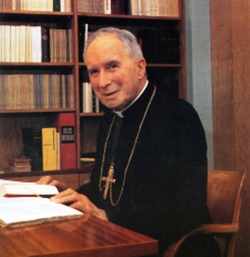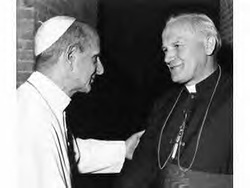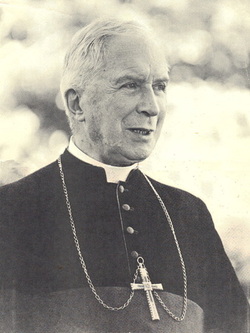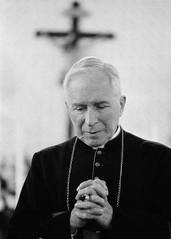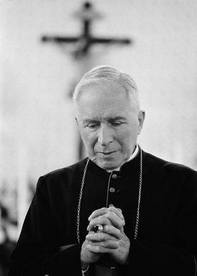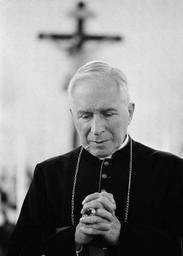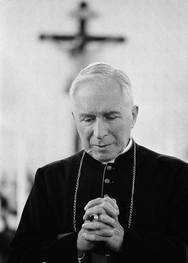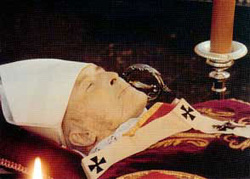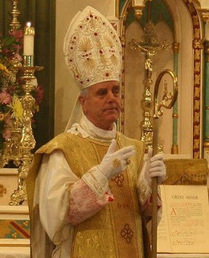
There are several parts of the article worth addressing, in what is, I might add, an obvious attempt at damage control while the Neo-SSPX attempts to pick up the pieces and restore its image in the aftermath of the numerous mistakes made by its leadership. I will begin with this paragraph:
“For several months now actually, it has seemed that a wind of madness is blowing in our circles, and this wind is so violent and irrational that it has caused some priests or laypeople to fall—too many, but fortunately not as many as they would like you to think. Some fall to the left, finding Bishop Fellay too strict, the others fall to the right, finding him too lax or liberal. Thank God, the great majority continues to walk straight ahead, faithful to the spirit of Archbishop Lefebvre.“
Firstly, “not as many as they would like you to think” is a misleading remark. The Resistance does not claim to be larger than it actually is. The Resistance priests admit that they are fairly small in size. But as we are all aware, truth is not determined by numbers. The majority of Catholics, in the midst of the turmoil caused by Vatican II, went along with the changes instituted by the Council, while only a portion of Catholics remained faithful to Tradition. We certainly know who was right in that situation.
Furthermore, the Neo-SSPX and its followers are not “faithful to the spirit of Archbishop Lefebvre” as the Neo-SSPX would like to have you think. I’ll address this in further detail in a moment.
“But you have to admit that the air sometimes becomes stifling: if you publicly declare your fidelity to and confidence in the Superior General, they will say that you are sowing disorder and making trouble. But if you speak publicly against Bishop Fellay, accusing him of liberalism and of secret maneuvers to bring about a reconciliation, you will have the reputation of being a valiant defender of the Faith and of the spirit of Archbishop Lefebvre. So it is, strange to say!“
Bishop Fellay has shown clearly through his own actions that he does not deserve the confidence of the faithful. This has been demonstrated so many times, through both his words and actions, that it is not necessary to delve into too much detail here. Those who declare their fidelity to him are indeed sowing disorder, but it is much more severe than that. They are participating in the creation of a new “brand” of “Traditionalism”. Only it is not genuine Traditionalism in the slightest, it is neo-Traditionalism. Declaring that the Jews are our “elder brothers” or that Vatican II is “95% acceptable” is not truly Traditional.
Here is the next paragraph:
“This has been said and written so many times already that you hesitate to say it once again, but Archbishop Lefebvre never made any claim to “converting” Rome or the Pope. At the very most, he used to say to those who rebuked him for going to Rome: “Who knows? I may do them a little good!” He never rejected contacts or discussions with Rome, in the hope of gaining freedom for his work and for Tradition. He fought and condemned the modern errors, those from before the Council, those of the Council and those after the Council, but he never fought or condemned Rome or the Pope.”
The fact that Archbishop Lefebvre continued to maintain contact with Rome is greatly exaggerated in this piece. He continued to go to Rome in order to convert them, not to have friendly dialogue with them or to try to “reconcile” with them. The Archbishop said this in 1990 of those that sell out to Rome (which is precisely what was attempted by Bishop Fellay in 2012):
“And we must not waver for one moment either in not being with those who are in the process of betraying us. Some people are always admiring the grass in the neighbor’s field. Instead of looking to their friends, to the Church’s defenders, to those fighting on the battlefield, they look to our enemies on the other side. “After all, we must be charitable, we must be kind, we must not be divisive, after all, they are celebrating the Tridentine Mass, they are not as bad as everyone says” —but THEY ARE BETRAYING US —betraying us! They are shaking hands with the Church’s destroyers. They are shaking hands with people holding modernist and liberal ideas condemned by the Church. So they are doing the devil’s work.” (Archbishop Lefebvre, Address to his priests, Econe, 1990)
Next paragraph:
“And history, in its objective truth—quite apart from all the interpretations that we can give to the facts--tells us that his work was approved and recognized by Bishop Charriere, a thoroughly conciliar bishop, who never bothered His Excellency; and history also tells us that the protocol agreement that he had signed on May 5, 1988 went much further than Bishop Fellay’s proposals of last year. And Archbishop Lefebvre was not the one who put an end to the meetings; it was none other than Cardinal Ratzinger, by refusing what His Excellency requested in his letter dated May 6, 1988 (the consecration of one bishop, as provided in the protocol agreement). These are things that should not be forgotten [as well as the fact that all of this transpired two weeks later and after the Archbishop had made some visits to Rome—so he did not reject the Protocol the next day as has been falsely claimed —Ed].“
The above is untrue. Archbishop Lefebvre’s 1988 protocol did not go further than the 2012 preamble of Bishop Fellay. Read the Archbishop’s protocol, then compare it with +Fellay’s. It is obvious to those with sufficient reading comprehension that + Fellay’s proposals went much further.
As for the assertion that the Archbishop did not reject the protocol the next day, I present you with his own words on the matter:
“Regarding the May 5, 1988 Protocol… “If only you knew what a night I passed after signing that infamous agreement! Oh! How I wanted morning to come so that I could give Fr. du Chalard my letter of retraction which I had written during the night.” (‘Marcel Lefebvre’ Bp. Tissier de Mallerais p. 555).
Moving on to the next paragraph:
“Some may disagree with Archbishop Lefebvre’s stance (but then they should have said so during his lifetime!), or Bishop Fellay’s (but then they should have said so at the time of the first contacts in 2000!), but it is strange that this reawakening of consciences is occurring only now that nothing was accomplished and nothing is foreseen; and it is untrue to accuse Bishop Fellay of being unfaithful to Archbishop Lefebvre. Aside from differences in temperament or personal experience, the line has remained the same, and there are no indications that it is about to change; quite the contrary.”
It actually is true to say that Bishop Fellay has been unfaithful to Archbishop Lefebvre. This article should shed some light on that:
http://traditionalcatholicremnant.wordpress.com/2013/05/01/two-conflicting-mindsets/
There are other things worth noting as examples, including the fact that Bishop Fellay recently banned a book in France that consisted primarily of quotes from the Archbishop. If that is not “being unfaithful to Archbishop Lefebvre”, I don’t know what is.
The article is prolonged for several more paragraphs, but I need only address one final paragraph here:
“In all this controversy, what many people lack is quite simply the sensus Ecclesiae, the mind of the Church. I do not claim to be better than those who abandon us, but I wonder: toward what Church are they venturing? The Church of Pius XII? Of St. Pius X? Of St. Pius V? But these “Churches” do not exist, any more than the “conciliar Church” or “modernist Rome” exist—these are merely expressions to describe the state of the Church or of Rome since the last Council, since they have been infested with a “non-Catholic sort of thinking” that tries to give them a more “worldly” face. There is only the Holy Catholic Church and Eternal Rome, to which Archbishop Lefebvre paid a vivid homage at the conclusion of his book Spiritual Journey, and that we desire to serve with all the grace received by the Church on the Feast of All Saints in 1970. They simply forget that the Church is not a “mental object”, as the philosophers say.”
What about the church that Bishop Fellay is venturing towards? It is the conciliar church, and we know what the Archbishop said about those that venture towards it:
“This Conciliar Church is, therefore, not Catholic. To whatever extent Pope, Bishops, priests, or the faithful adhere to this new church, they separate themselves from the Catholic Church.” (Archbishop Lefebvre, Reflections on his suspension a divinis, July 29, 1976)
To sum things up, we must ask ourselves who is truly faithful to the mission of Archbishop Lefebvre. Reviewing the facts, it becomes clear that it certainly isn’t Bishop Fellay and the Neo-SSPX! This new jab at the Resistance from (N)SSPX.org only re-affirms that.
God Bless.
http://traditionalcatholicremnant.wordpress.com/2014/02/15/the-neo-sspx-unfaithful-to-the-archbishop/
